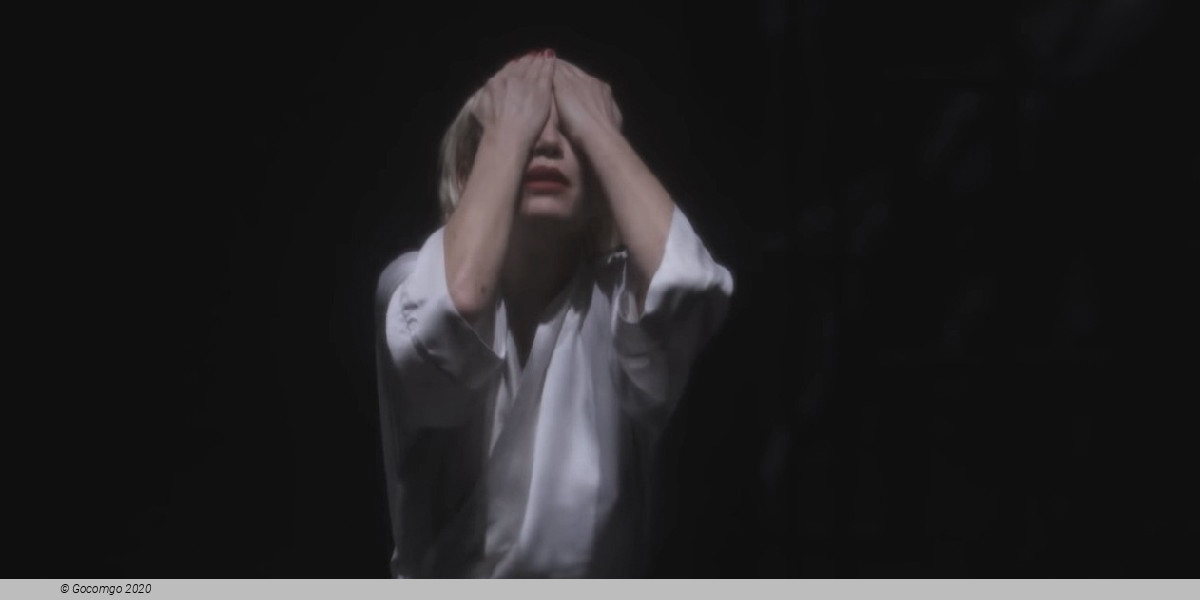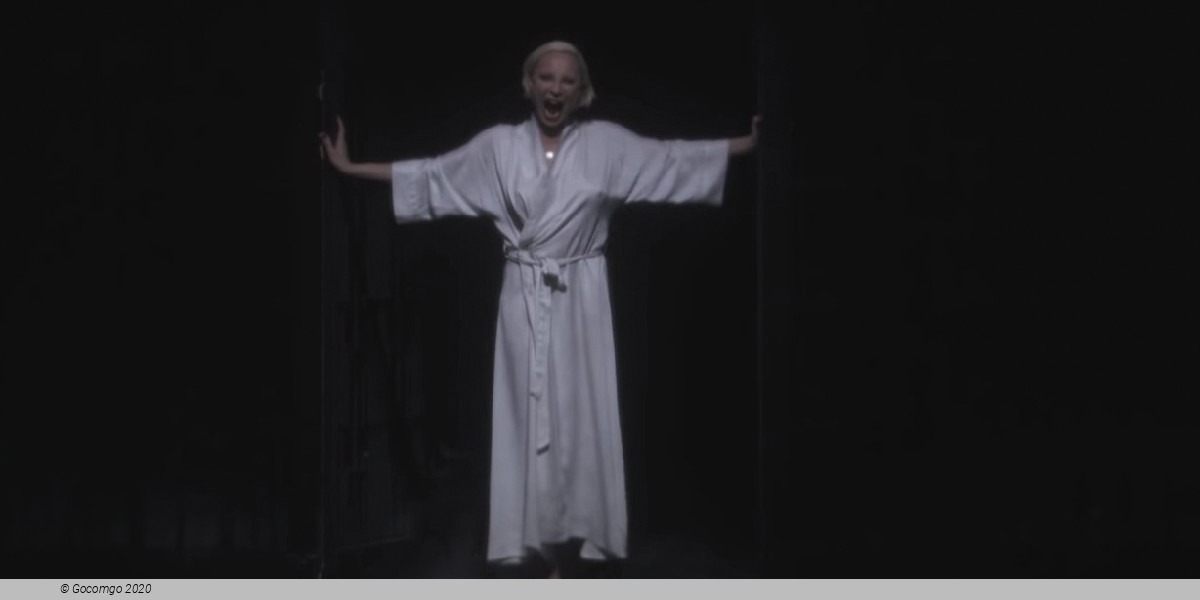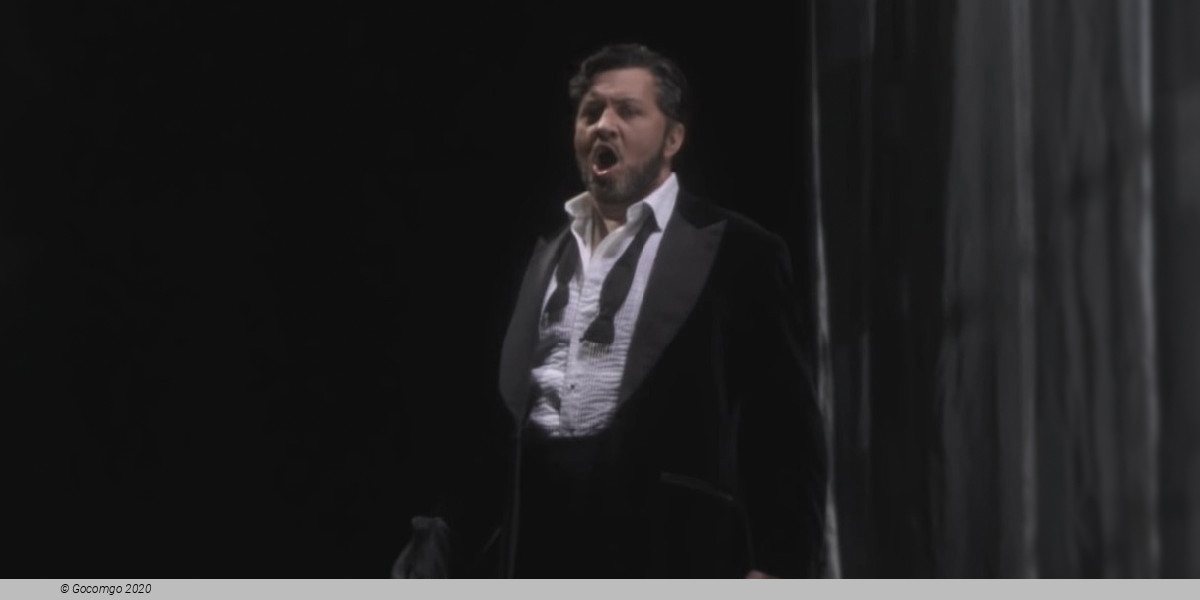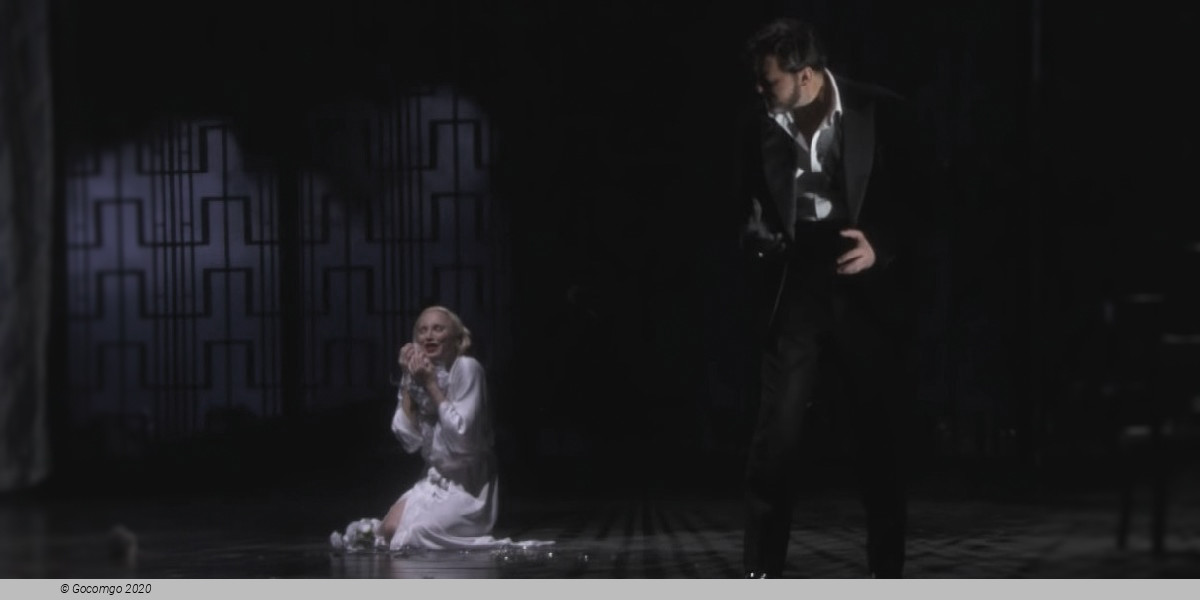Place: A huge, dark hall in a castle, with seven locked doors.
Time: Not defined.
Judith and Bluebeard arrive at his castle, which is all dark. Bluebeard asks Judith if she wants to stay and even offers her an opportunity to leave, but she decides to stay. Judith insists that all the doors be opened, to allow light to enter into the forbidding interior, insisting further that her demands are based on her love for Bluebeard. Bluebeard refuses, saying that there are private places not to be explored by others, and asking Judith to love him but ask no questions. Judith persists, and eventually prevails over his resistance.
The first door opens to reveal a torture chamber, stained with blood. Repelled, but then intrigued, Judith pushes on. Behind the second door is a storehouse of weapons, and behind the third a storehouse of riches. Bluebeard urges her on. Behind the fourth door is a secret garden of great beauty; behind the fifth, a window onto Bluebeard's vast kingdom. All is now sunlit, but blood has stained the riches, watered the garden, and grim clouds throw blood-red shadows over Bluebeard's kingdom.
Bluebeard pleads with her to stop: the castle is as bright as it can get, and will not get any brighter, but Judith refuses to be stopped after coming this far, and opens the penultimate sixth door, as a shadow passes over the castle. This is the first room that has not been somehow stained with blood; a silent silvery lake is all that lies within, "a lake of tears". Bluebeard begs Judith to simply love him, and ask no more questions. The last door must be shut forever. But she persists, asking him about his former wives, and then accusing him of having murdered them, suggesting that their blood was the blood everywhere, that their tears were those that filled the lake, and that their bodies lie behind the last door. At this, Bluebeard hands over the last key.
Behind the door are Bluebeard's three former wives, but still alive, dressed in crowns and jewellery. They emerge silently, and Bluebeard, overcome with emotion, prostrates himself before them and praises each in turn (as his wives of dawn, midday and dusk), finally turning to Judith and beginning to praise her as his fourth wife (of the night). She is horrified and begs him to stop, but it is too late. He dresses her in the jewellery they wear, which she finds exceedingly heavy. Her head drooping under the weight, she follows the other wives along a beam of moonlight through the seventh door. It closes behind her, and Bluebeard is left alone as all fades to total darkness.
The curtain opens to reveal a bedroom where a woman (Elle) lies unmoving on the ground. She changes position once before finally rising. Although she makes to leave the room, the phone rings and she returns to answer it. The woman receives two wrong numbers before her ex-lover is able to get through to her. She lies to him, saying that she went out with her friend Marthe the previous night, and that she took one pill to help her fall asleep when she returned. The couple discuss their past relationship, and Elle blames herself for their problems, claiming, "Tout est ma faute." Throughout their conversation, they experience numerous telephone problems, and their connection finally cuts out completely. When Elle calls her lover's home phone, she discovers that he is not there and assumes that he is at a restaurant. He calls her back, and Elle reveals that she has lied during their conversation; instead of going out with Marthe the previous night, she took twelve sleeping pills in an attempted suicide. She then called Marthe, who arrived with a doctor to save her. Elle suddenly hears music in the background, and she grows suspicious that her lover is at the home of his new girlfriend. She expresses her suspicions to him several times until the end of the opera, but he never admits to his true location. Elle also reveals her obsession with the telephone, explaining that she has slept with it in her bed for the past two nights. Their connection fails once again, and Elle panics. Her lover calls her back once more, and she informs him that she now has the telephone cord wrapped around her neck. Telling him she loves him over and over, she sinks into her bed and drops the receiver, possibly strangling herself with its cord in the process.






 Via San Carlo, 98
Via San Carlo, 98